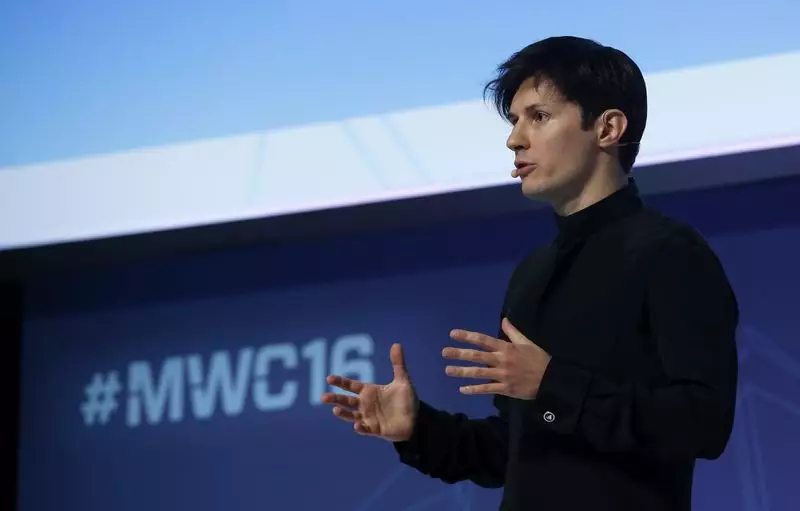The recent arrest of Pavel Durov, the CEO of Telegram, at the Bourget airport outside Paris has sparked widespread discussion and controversy surrounding the popular messaging app. Durov, a billionaire founder of Telegram, was targeted by an arrest warrant in France as part of a preliminary police investigation. Reports suggest that the investigation was centered around the lack of moderators on Telegram, allowing criminal activity to continue unchecked on the platform. This incident raises important questions about the role of social media platforms in regulating content and preventing illegal activities.
Telegram, known for its strong presence in Russia, Ukraine, and other former Soviet Union republics, has emerged as a major player in the social media landscape. With aspirations to reach one billion users in the near future, Telegram competes with industry giants like Facebook, YouTube, WhatsApp, and WeChat. The app gained prominence after Durov’s departure from Russia in 2014 following disagreements with the government over censorship on his previous social media venture, VK. In light of recent events, Telegram has become a crucial source of information for individuals on both sides of the Russia-Ukraine conflict.
The arrest of Pavel Durov and the subsequent investigation into Telegram’s moderation practices raise important concerns about freedom of speech and expression on online platforms. While some argue that stricter moderation is necessary to curb criminal activities, others view it as a potential threat to free speech. Durov’s stance on maintaining Telegram as a “neutral platform” highlights the complexities of balancing user privacy and security with the need to prevent illegal content dissemination. These developments underscore the broader debate surrounding online censorship and the responsibilities of social media companies in regulating their platforms.
The reaction to Durov’s arrest has been mixed, with Russian officials condemning France’s actions and accusing the country of authoritarian behavior. The Russian embassy in France expressed concern over the situation and pledged to investigate further. Additionally, calls for protests at French embassies around the world reflect the heightened tensions surrounding the incident. As global scrutiny intensifies, the implications of Durov’s arrest extend beyond individual privacy concerns to broader issues of government control, media freedom, and international relations.
As the situation unfolds, it is crucial to consider the long-term implications of Durov’s arrest and its impact on Telegram’s future. The controversy surrounding the messaging app highlights the challenges of navigating between regulatory compliance and maintaining user trust. Moving forward, stakeholders must address the delicate balance between safeguarding online communities and upholding fundamental rights. Ultimately, the outcome of this case will likely shape the trajectory of online communication platforms and their role in shaping public discourse.

